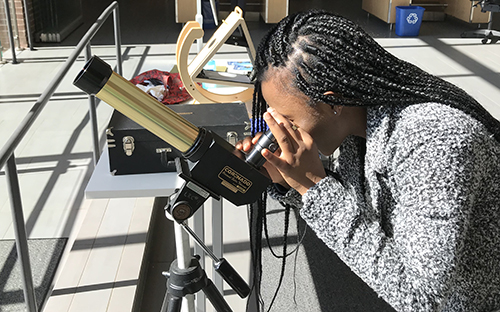Why study astronomy?
Professional astronomers are highly trained in mathematics and physics, giving them excellent job prospects in a variety of fields. In astronomy itself, jobs range from university professorships to research positions at governments labs to consulting work for NASA, politicians, mass media, and Hollywood.
At Parkland, you'll have the advantage of small class sizes, taught by master faculty—never teaching assistants. Your success is our priority.
Classes
The Solar System (AST 101) explores both historical and modern understanding of the stars, planets, comets, asteroids, and meteors of our solar system. This class involves some evening telescope observations.
Stars, Galaxies, and the Universe (AST 102) expands further to examine objects of the universe such as white dwarfs, neutron stars, and black holes. It also examines the development and evolution of stars. This class involves some evening telescope observations.

Will my classes transfer?
AST 101 and AST 102 will fulfill the Physical Sciences general education requirement at Illinois public universities. Parkland College classes with an even middle digit (such as ENG 101, MAT 128, and BIO 141) are accepted for transfer as general education classes, major courses, or electives as determined by the transfer institution.
For more information about transferring, speak with an academic advisor and visit the Parkland Course Matrix.
Curriculum
Learn more about how these classes fit into a transfer degree or the general education core curriculum (GECC).